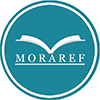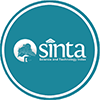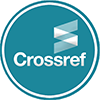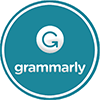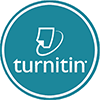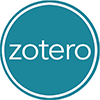Pengembangan Asesmen Berbasis Game Education “Smart Pirates” pada Materi Tekanan Hidrostatis
Abstract
This paper consist of research and development of assessment based on game education “Smart Pirates” to facilitate educators in assessing the material of Hydrostatic Pressure and create a fun learning atmosphere for students. The research has been conducted using a research and development theory adapted from Borg and Gall design and consisted of three stages. The research subjects were students of FMIPA UM. The instrument used was a questionnaire and quantitative descriptive data analysis. Based on the results of this research, it can be concluded that the assessment developed has met the eligible criteria. "Smart Pirates" can help educators in making assessments effectively and optimally and make students relax in working on the questions well.
Keywords
Full Text:
PDFReferences
Agung, A. A. G. (2012). Metodologi Penelitian; Suatu Pengantar. Singaraja: Fakultas Ilmu Pendidikan Universitas Pendidikan Ganesha.
Arywiantari, D., Agung, A. A. G., & Tastra, I. D. K. (2015). Pengembangan Multimedia Interaktif Model 4D Pada Pembelajaran IPA di SMP Negeri 3 Singaraja. Jurnal Edutech Undiksha, 3(1).
Efendi, A., Sumarni, S., & Efendi, A. (2015). Pengembangan Media Pembelajaran Berbasis Video Tutorial Pada Mata Kuliah Mekanika Tanah. Indonesian Journal Of Civil Engineering Education, 1(1).
Kearney, C. A. (2002). Identifying the function of school refusal behavior: A revision of the School Refusal Assessment Scale. Journal of Psychopathology and Behavioral Assessment, 24(4), 235–245.
Kurniawan, B. R., Shodiqin, M. I., Saputri, D. E., Kholifah, M. N., & Affriyenni, Y. (2020). Development of android-based assessment to improve student’s concept acquisition on vector topics. AIP Conference Proceedings, 2215(1), 050009.
Kusairi, S. (2012). Analisis asesmen formatif fisika sma berbantuan komputer. Jurnal Penelitian Dan Evaluasi Pendidikan, 16, 68–87.
Kusairi, S., Alfad, H., & Zulaikah, S. (2017). Development of web-based intelligent tutoring (iTutor) to help students learn fluid statics. Journal of Turkish Science Education, 14(2), 1–11.
Lakoro, R. (2009). Mempertimbangkan peran permainan edukasi dalam pendidikan di Indonesia. Seminar Industri Kreatif ITS Tahun.
Novaliendry, D. (2013). Aplikasi game geografi berbasis multimedia interaktif (studi kasus siswa kelas IX SMPN 1 RAO). Jurnal Teknologi Informasi & Pendidikan, 6(2), 106–118.
Pakpahan, R. (2016). Model ujian nasional berbasis komputer: Manfaat dan tantangan. Jurnal Pendidikan Dan Kebudayaan, 1(1), 19–35.
Pelletiere, C. (2009). Games and Learning. International Journal of Learning and Media, 1(1), 84–100.
Saadjad, D. Y. (2016). Perbandingan Metode Pembelajaran Blended Learning Menggunakan Powerpoint Dipandu Animasi Untuk Meningkatkan Hasil Belajar Fisika Siswa Di SMP Negeri 7 Palu Dan Smp Negeri 9 Palu. JSTT, 5(2).
Scalise, K. (2006). Computer-based assessment in e-learning: A framework for constructing “Intermediate Constraint” questions and tasks for technology platforms. The Journal of Technology, Learning, and Assessment, 4(6), 3–44.
Setyoko, S. (2018). Implementasi Pembelajaran Blended Learning Berbasis Media Google Classrom Terhadap Hasil Belajar Mahasiswa Pendidikan Fisika. Jurnal Pendidikan Fisika Dan Sains, 1(02), 5–10.
Shute, V. J., & Rahimi, S. (2017). Review of computer‐based assessment for learning in elementary and secondary education. Journal of Computer Assisted Learning, 33(1), 1–19.
Stockwell, B. R., Stockwell, M. S., Cennamo, M., & Jiang, E. (2015). Blended learning improves science education. Cell, 162(5), 933–936.
Sugiyono, S. (2010). Metode penelitian kuantitatif dan kualitatif dan R&D. ALFABETA Bandung.
Susman, K., Pavlin, J., & Cepic, M. (2008). It Seems Easy To Float, But Is It Really? A Teaching Unit For Buoyancy. 1–11.
Suyoso, S., Istiyono, E., & Subroto, S. (2017). Pengembangan instrumen asesmen pengetahuan fisika berbasis komputer untuk meningkatkan kesiapan peserta didik dalam menghadapi ujian nasional berbasis komputer. Jurnal Pendidikan Matematika Dan Sains, 5(1), 123085.
Widiana, I. W. (2016). Pengembangan asesmen proyek dalam pembelajaran ipa di sekolah dasar. JPI (Jurnal Pendidikan Indonesia), 5(2), 147–157.
Yana, A. U., Antasari, L., & Kurniawan, B. R. (2019). ANALISIS PEMAHAMAN KONSEP GELOMBANG MEKANIK MELALUI APLIKASI ONLINE QUIZIZZ. Jurnal Pendidikan Sains Indonesia (Indonesian Journal of Science Education), 7(2), 143–152.
Zainuddin, Z., & Keumala, C. M. (2018). Blended learning method within Indonesian higher education institutions. Jurnal Pendidikan Humaniora, 6(2), 69–77.
DOI: https://doi.org/10.18860/experiment.v1i1.11112
Refbacks
- There are currently no refbacks.
Copyright (c) 2020 EXPERIMENT: Journal of Science Education

This work is licensed under a Creative Commons Attribution-NonCommercial 4.0 International License.
INDEXED & SUPPORTED BY:
EDITORIAL OFFICE
Fakultas Ilmu Tarbiyah dan Keguruan
Universitas Islam Negeri Maulana Malik Ibrahim Malang
Jalan Gajayana 50 Malang 65144, Jawa Timur, Indonesia
Telp/Fax: +62341-552398
Email: experiment@uin-malang.ac.id / Website: http://ejournal.uin-malang.ac.id/index.php/experiment





